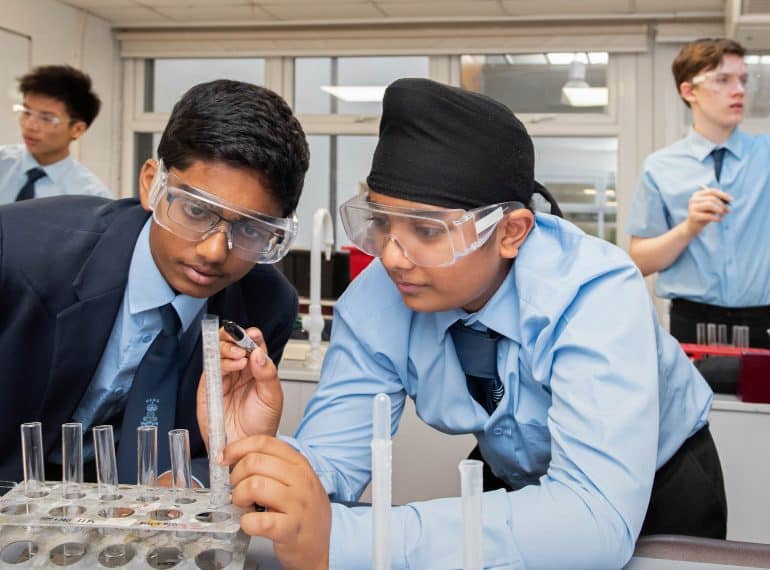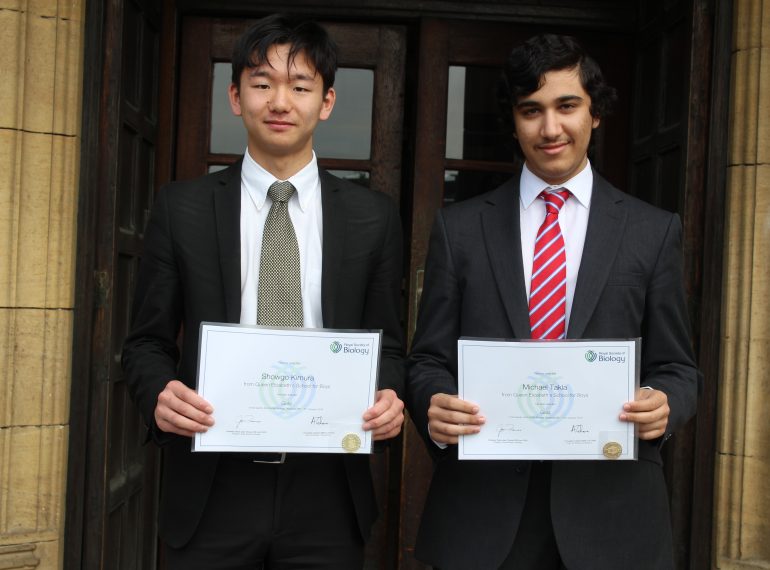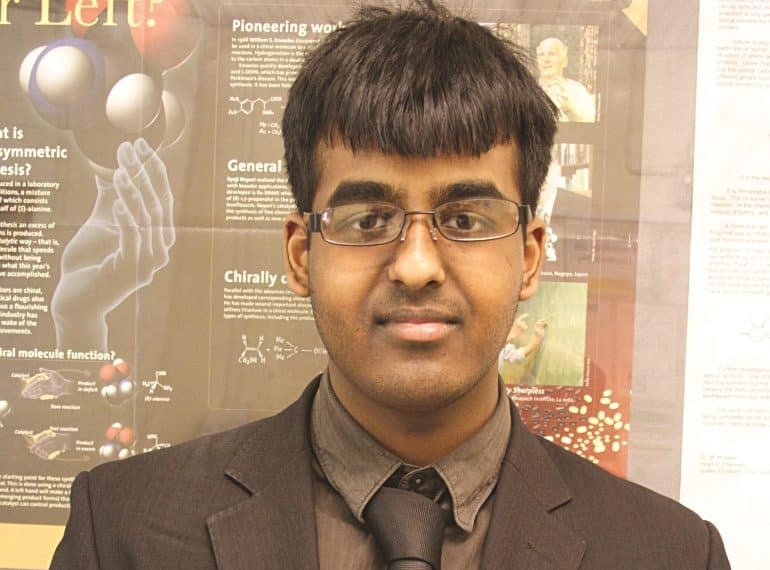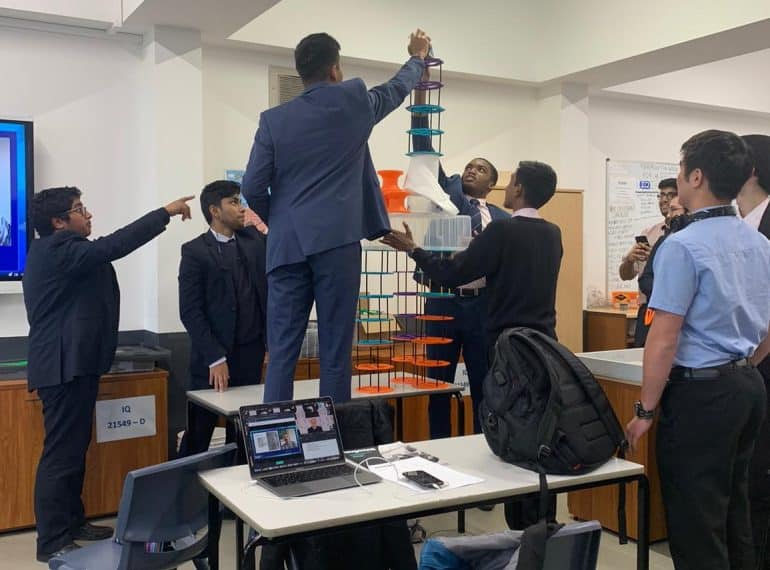
Experts have been helping QE A-level students see the exciting topical applications of their subjects in the real world in a series of lectures streamed into the School.
 Sixth-formers have already enjoyed stimulating day-long sessions on Medicine in Action, Chemistry in Action, Product Design in Action and Geography in Action, with a similar event for Biology due to take place in December.
Sixth-formers have already enjoyed stimulating day-long sessions on Medicine in Action, Chemistry in Action, Product Design in Action and Geography in Action, with a similar event for Biology due to take place in December.
The training days are run by The Training Partnership, the leading provider of external educational study days in the UK, and would normally be held in London, but are this year being conducted remotely because of Covid-19.
QE’s Head of Technology, Michael Noonan, said that the Product Design A-level students, and even a couple of “enthusiastic non-subject specialists”, enjoyed a “superb day” of lectures. “Favourite amongst the talks attended by students was Pioneering aeronautical innovation by Sam Rogers – an aeronautical engineer working in product development for Gravity Industries, a company who are currently developing a jetpack suit.”
One of the pupils attending, Paul Ofordu, of Year 12, said: “It was amazing to see the application of prototyping, testing and iterative design in such a high-end product development project.”
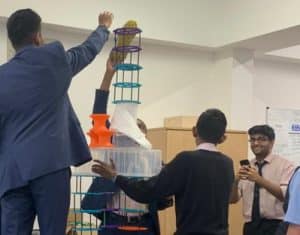 The Resourcefulness and design lecture, delivered by Kingston University Senior Lecturer Pascal Anson, stimulated a practical activity, pictured. “Here we see some examples of structures which were resourcefully developed by the students using VEX IQ and EDR Robotics game elements – great thinking on their feet!” added Mr Noonan.
The Resourcefulness and design lecture, delivered by Kingston University Senior Lecturer Pascal Anson, stimulated a practical activity, pictured. “Here we see some examples of structures which were resourcefully developed by the students using VEX IQ and EDR Robotics game elements – great thinking on their feet!” added Mr Noonan.
Chemistry students gathered in the Main School Hall to hear engaging contributions from speakers who ranged from Andrea Sella, a synthetic chemist and broadcaster, talking about mercury – “the most beautiful element in the periodic table and the most reviled” – to marine engineer Hayley Loren exploring whether nuclear fusion could provide the solution to the world’s energy issues.
Julia Lister, QE’s Head of Chemistry, said: “The engaging Chemistry in Action lectures covered an array of topics. Streaming these lectures took students from key concepts to cutting-edge science and future directions across many applications of the subject.”
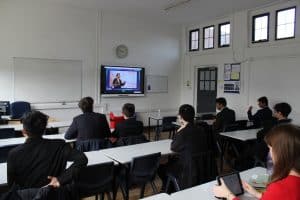 The Geography lectures were similarly wide-ranging. One talk, entitled Lessons in sustainability: An explorer’s tale, was by Jason Lewis, the first person to circumnavigate the earth without using motors or sails. Another featured academic Martin Evans, from the University of Manchester, speaking on Landscape Systems in the Anthropocene. And Emily Parry, Head of Geography, highlighted lectures on water insecurity and on how COVID-19 has impacted the Pacific Islands.
The Geography lectures were similarly wide-ranging. One talk, entitled Lessons in sustainability: An explorer’s tale, was by Jason Lewis, the first person to circumnavigate the earth without using motors or sails. Another featured academic Martin Evans, from the University of Manchester, speaking on Landscape Systems in the Anthropocene. And Emily Parry, Head of Geography, highlighted lectures on water insecurity and on how COVID-19 has impacted the Pacific Islands.
“The boys enjoyed the talks, which both built up content covered in their A-level course and extended their knowledge on a range of issues facing the planet,” she said.
“Each lecture was followed with a Q&A session in which the boys could send in questions to the lecturer. Often questions focused around what young people themselves could do to help address some of the issues explored such as climate change, river pollution and how we choose a sustainable future.”
Head of Biology Gillian Ridge said that after the forthcoming Biology in Action day, boys who attend will be invited to give a series of lunchtime presentations to the rest of their year based on the talks.

